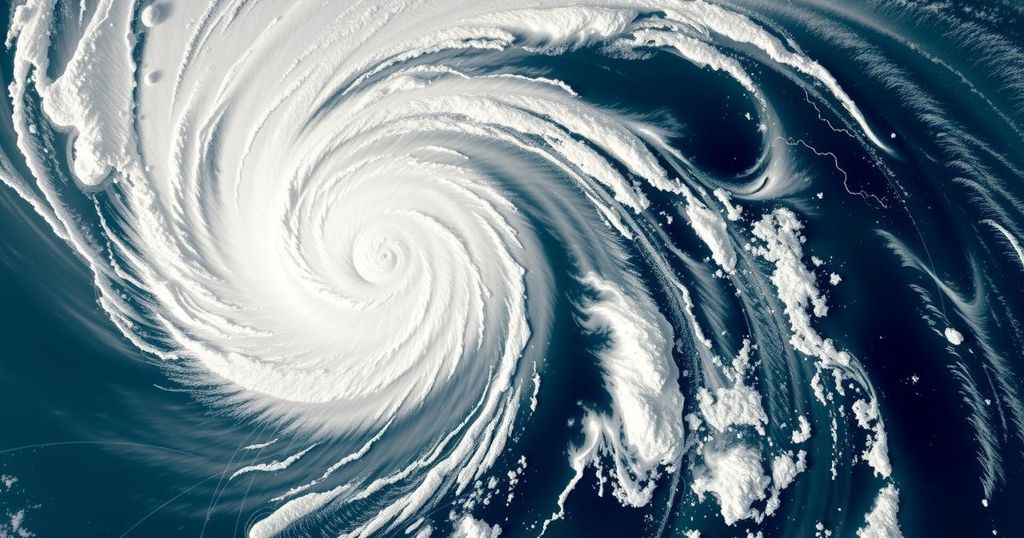Tropical Cyclone Chido has ravaged Mayotte, causing extensive damage and prompting red alerts for safety. The cyclone is set to impact Mozambique and surrounding regions, with authorities mobilizing emergency services. Concerns continue for fishermen from Comoros, and the risk of flooding and disease outbreaks heightens as the cyclone season progresses.
Tropical Cyclone Chido has inflicted significant damage upon Mayotte, a French territory located in the Indian Ocean, as it advances towards the eastern coast of Africa. Reports indicate that the cyclone brought winds exceeding 220 kilometers per hour, resulting in widespread destruction across the islands, which house a population of approximately 300,000. Mayotte Prefect Francois-Xavier Bieuville noted that many residents have lost their homes and possessions, characterizing this event as the “most violent and destructive cyclone since 1934.”
Despite the lifting of the highest alert level to facilitate rescue operations, a red alert remains in effect for the general public. Residents have been advised to shelter in solid structures as emergency and security services conduct their operations. The French Interior Minister, Bruno Retailleau, acknowledged the extensive damage occurring in Mayotte and assured that local and state emergency services were fully mobilized to address the crisis.
Local reports indicate that numerous homes have lost power, and various structures have been blown away along with multiple fallen trees. In response to the disaster, 110 rescuers and firefighters have been dispatched from France and Reunion, with an additional contingent of 140 personnel expected to arrive soon. Additionally, the Comoros islands, situated north of Mayotte, are also experiencing the storm’s effects, leading to concerns for a group of fishermen missing since Monday. Authorities in the Comoros have implemented maritime and aviation restrictions while schools have been closed to prepare for the cyclone’s impact.
Forecasters anticipate that Cyclone Chido will maintain its path towards Mozambique, which could face severe repercussions as around 2.5 million residents may be affected, especially in the northern provinces of Cabo Delgado and Nampula. Nearby regions such as Malawi and Zimbabwe are preparing for potential flooding, with local management agencies advising citizens to seek higher ground and prepare for evacuation if necessary. As cyclone season spans from December to March in this region, there have been increasing consequences from these weather events over recent years, including Cyclone Idai in 2019, which resulted in substantial fatalities across Mozambique, Malawi, and Zimbabwe.
The phenomenon of tropical cyclones, particularly in the southeastern Indian Ocean, has grown more alarming in recent years due to climate change. Sea surface temperatures have risen, leading to more intense storms that pose severe threats to regions like southern Africa, which is not significantly responsible for global climate changes. Cyclone season runs from December through March, often resulting in humanitarian crises due to flooding, landslides, and outbreaks of waterborne diseases. Historical cyclones such as Idai and Freddy have underscored the deadly potential of these storms, raising concerns about the vulnerability of countries already limited in resources.
In summary, Tropical Cyclone Chido has caused considerable devastation in Mayotte and poses impending threats to neighboring regions as it advances towards Mozambique. Emergency services are actively mobilized, and community safety measures are in place to prevent further casualties. The increasing severity of cyclones in this region emphasizes the urgent need for effective disaster preparedness and response strategies, particularly in the context of climate change and its associated risks. The ongoing cyclonic activity not only highlights the immediate threats faced by local populations but also underscores broader implications for humanitarian crises in under-resourced areas of southern Africa.
Original Source: www.voanews.com






